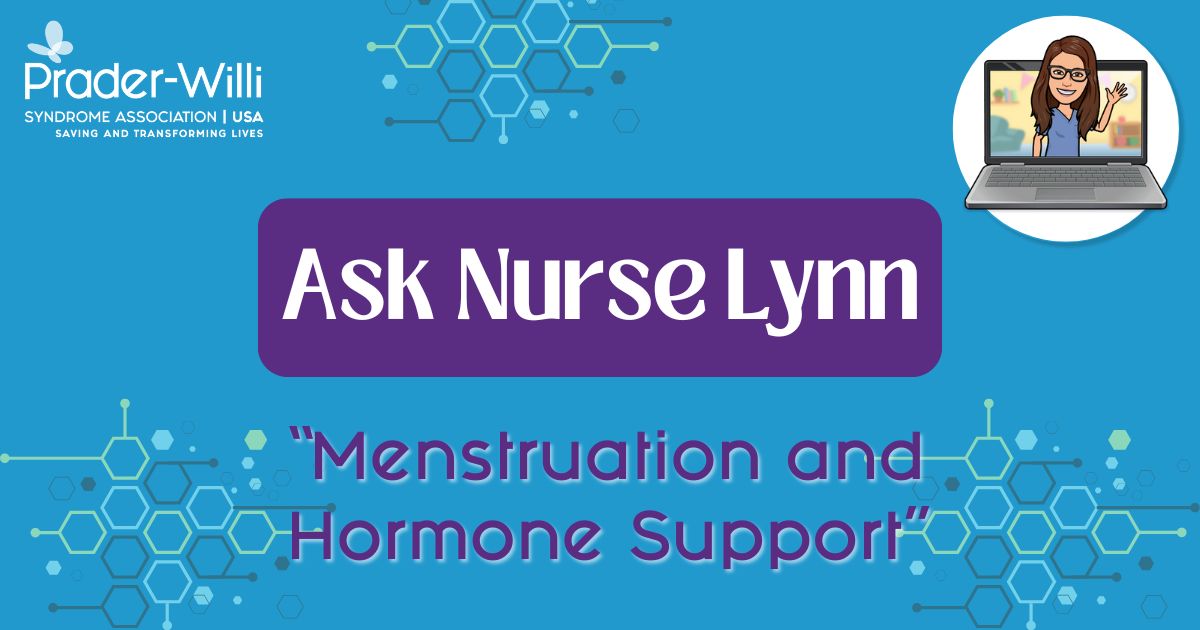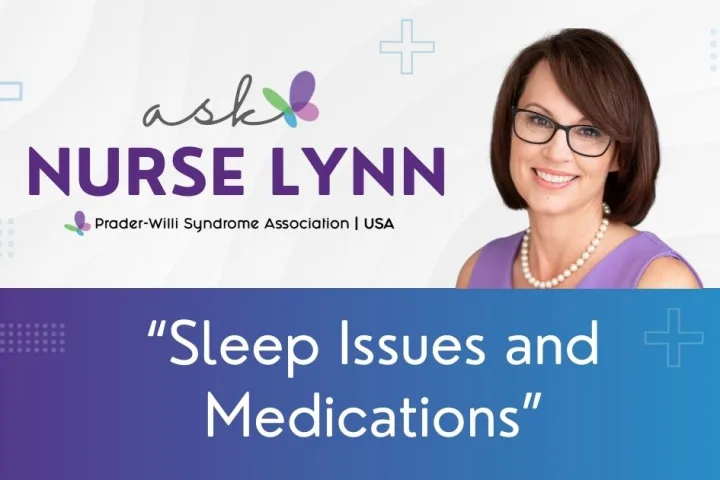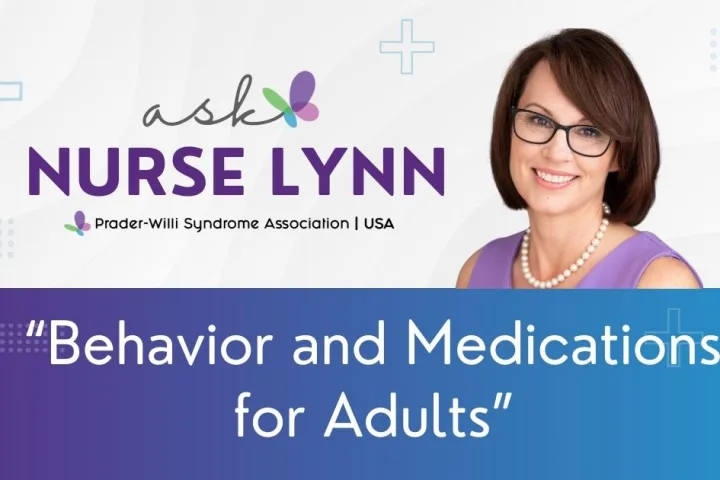Question
Female, 15, Deletion:
Do you happen to know of any standard of care as far as hormone support or instigating a menstrual cycle in females with PWS? Is there any harm in waiting to initiate a cycle? I know a lot of women and girls with PWS never start their period without medical intervention, but many do start, just later than most. We’re getting a lot of pressure to get started with these things, but there are lots of indications that my girl may start at her cycle any time (hormone levels/physical development,) and I’d like to see that happen, if it is possible & not problematic.
Nurse Lynn’s Response
Hello, and thank you for your excellent question. I have consulted with a physician expert to help answer this question.
To start, here is a brief overview. We know that most PWS individuals have hypogonadism. Hypogonadism is the condition where the production of sex hormones (estrogen/testosterone) and germ cells (ova/sperm) are deficient. Most of our kids have incomplete development with low sex steroid levels, poor growth spurts, the absence of periods in girls, or infrequent/irregular periods.
In our girls, we can consider treatment with Hormone Replacement Therapy (HRT) if there is no breast development by the age of 12-13 years, if the development stops, or if there are no periods by the age of around 14.5 years. You can start with a low-dose estradiol patch and gradually increase, or there is also a pill form.
When girls have an incomplete progression of puberty, their height growth slows. Estrogen replacement can support height growth if the growth plates remain open.
When we reach a maintenance dose with the Estradiol patch, you can add a cyclic micronized progesterone (Prometrium) for ten days every 3-4 months. The alternative would be oral contraceptive pills with a placebo every 3rd pack, ease of use.
We should consider “normal timing” to individualize the plan based on their tolerance level and understanding of how it affects their mood and quality of life.
Do You have a question for Nurse Lynn? Submit your question here.
Share this!





 Perry A. Zirkel has written more than 1,500 publications on various aspects of school law, with an emphasis on legal issues in special education. He writes a regular column for NAESP’s Principal magazine and NASP’s Communiqué newsletter, and he did so previously for Phi Delta Kappan and Teaching Exceptional Children.
Perry A. Zirkel has written more than 1,500 publications on various aspects of school law, with an emphasis on legal issues in special education. He writes a regular column for NAESP’s Principal magazine and NASP’s Communiqué newsletter, and he did so previously for Phi Delta Kappan and Teaching Exceptional Children. Jennifer Bolander has been serving as a Special Education Specialist for PWSA (USA) since October of 2015. She is a graduate of John Carroll University and lives in Ohio with her husband Brad and daughters Kate (17), and Sophia (13) who was born with PWS.
Jennifer Bolander has been serving as a Special Education Specialist for PWSA (USA) since October of 2015. She is a graduate of John Carroll University and lives in Ohio with her husband Brad and daughters Kate (17), and Sophia (13) who was born with PWS. Dr. Amy McTighe is the PWS Program Manager and Inpatient Teacher at the Center for Prader-Willi Syndrome at the Children’s Institute of Pittsburgh. She graduated from Duquesne University receiving her Bachelor’s and Master’s degree in Education with a focus on elementary education, special education, and language arts.
Dr. Amy McTighe is the PWS Program Manager and Inpatient Teacher at the Center for Prader-Willi Syndrome at the Children’s Institute of Pittsburgh. She graduated from Duquesne University receiving her Bachelor’s and Master’s degree in Education with a focus on elementary education, special education, and language arts. Evan has worked with the Prader-Willi Syndrome Association (USA) since 2007 primarily as a Crisis Intervention and Family Support Counselor. Evans works with parents and schools to foster strong collaborative relationships and appropriate educational environments for students with PWS.
Evan has worked with the Prader-Willi Syndrome Association (USA) since 2007 primarily as a Crisis Intervention and Family Support Counselor. Evans works with parents and schools to foster strong collaborative relationships and appropriate educational environments for students with PWS. Staci Zimmerman works for Prader-Willi Syndrome Association of Colorado as an Individualized Education Program (IEP) consultant. Staci collaborates with the PWS multi-disciplinary clinic at the Children’s Hospital in Denver supporting families and school districts around the United States with their child’s Individual Educational Plan.
Staci Zimmerman works for Prader-Willi Syndrome Association of Colorado as an Individualized Education Program (IEP) consultant. Staci collaborates with the PWS multi-disciplinary clinic at the Children’s Hospital in Denver supporting families and school districts around the United States with their child’s Individual Educational Plan. Founded in 2001, SDLC is a non-profit legal services organization dedicated to protecting and advancing the legal rights of people with disabilities throughout the South. It partners with the Southern Poverty Law Center, Protection and Advocacy (P&A) programs, Legal Services Corporations (LSC) and disability organizations on major, systemic disability rights issues involving the Individuals with Disabilities Education Act (IDEA), Americans with Disabilities Act (ADA), and the federal Medicaid Act. Recently in November 2014, Jim retired.
Founded in 2001, SDLC is a non-profit legal services organization dedicated to protecting and advancing the legal rights of people with disabilities throughout the South. It partners with the Southern Poverty Law Center, Protection and Advocacy (P&A) programs, Legal Services Corporations (LSC) and disability organizations on major, systemic disability rights issues involving the Individuals with Disabilities Education Act (IDEA), Americans with Disabilities Act (ADA), and the federal Medicaid Act. Recently in November 2014, Jim retired.